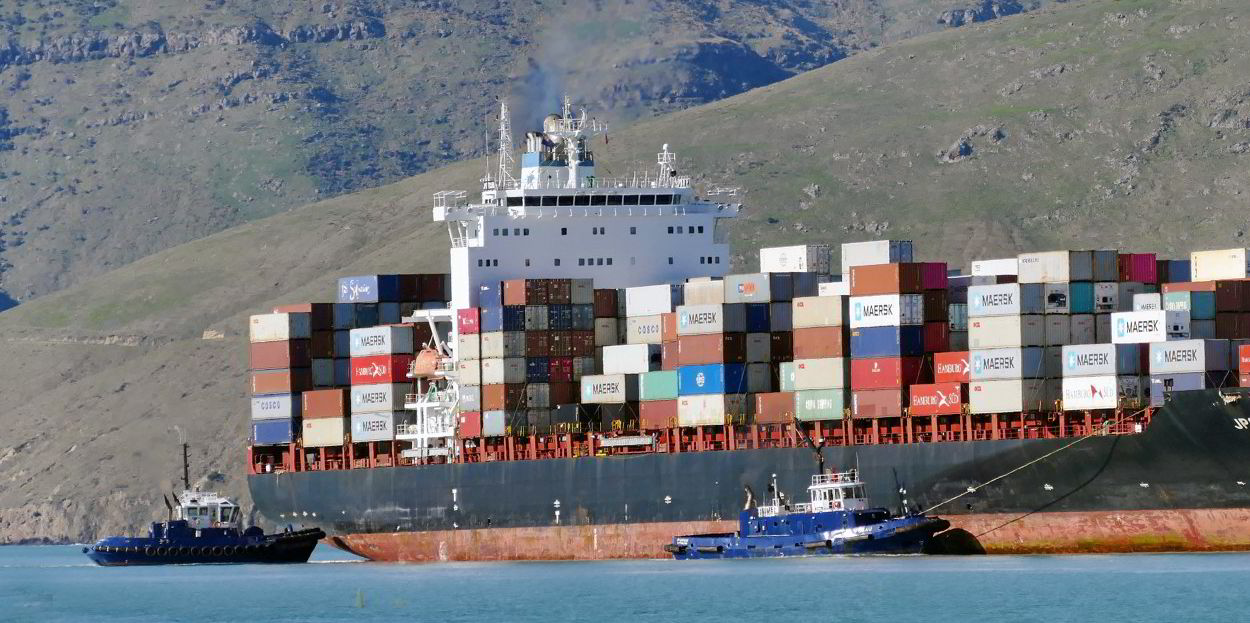The Science Based Targets initiative (SBTi) has issued guidance charting a pathway for shipping companies to commit to cutting carbon in line with the Paris Agreement, and it is a road that will see participants agree to cut emissions to practically zero carbon by 2040.
The nonprofit programme, described as a “gold standard” for certifying companies’ decarbonisation targets, has just laid out a trajectory for aligning shipping with halting global warming at 1.5C. That would see participants aim “residual-level” emissions at the end of the next decade, the group said.
Joachim Nahem, the chief executive of sustainability advisory and software company Position Green, said the SBTi guidelines are challenging the industry and the International Maritime Organization.

The nonprofit’s trajectory is far more ambitious than the International Maritime Organization’s present target aiming to chop shipping’s carbon emissions by 50% in 2050 relative to 2008 levels, and it comes as the United Nations body is weighing whether to raise its ambition to target net zero greenhouse gas emissions by the middle of the century.
“The IMO, as the policy setter and the body that is going to set a standard for the industry, is being challenged by SBTi, because it’s saying it’s not ambitious enough,” Nahem said.
The SBTi is a partnership of the Carbon Disclosure Project, United Nations Global Compact, World Resources Institute and the World Wide Fund for Nature.
Fernando Rangel, a Mexico City-based senior technical manager for the SBTi programme at the WWF, told a webinar that in order to be certified by the initiative, maritime companies will have to submit near-term targets for 2030 or later.
Rapid decarbonisation after 2030
And shipowners will have to submit long-term, science-based targets that show emissions and carbon intensity declining rapidly from 2030 to 2040.
“A long term, science-based target means reducing emissions to a residual level in line with 1.5C by no later than the year 2040,” he said.

Many shipping industry stakeholders involved in efforts to decarbonise the industry had been waiting for the SBTi to unveil its maritime guidance.
TradeWinds has reported that the Poseidon Principles initiative was looking to SBTi shipping guidance as a potential trajectory to review after the Global Maritime Forum-backed initiative, which benchmarks ship finance to decarbonisation targets, agreed to introduce a 1.5C-aligned trajectory.
So far, just seven shipowners and operators have committed to the SBTi, according to a public database. Of those, only Norway’s Hoegh Autoliners has had its near-term target aligned with “well below 2C” approved. Japan’s K Line and NYK Line have received approval for targets aligned with the earlier goal of 2C.
Only Netherlands-based Samskip, US-headquartered Crowley and the UK’s Bibby Marine have committed to SBTi’s net-zero targets.
Nahem, who advises companies on ESG, said it was difficult for shipping companies to sign up to the organisation’s 1.5C target without sector-specific guidance.
Investor focus on ESG
And those details come as SBTi is growing in importance for investors and banks focused on environmental, social and governance measures known as ESG.
“The capital markets are increasingly looking at SBTi as a … a gold standard for them to invest in,” Nahem told TradeWinds.

SBTi’s maritime guidance was produced by consultancy UMAS and the Dutch sustainability nonprofit Smart Freight Centre.
Jean-Marc Bonello, a principal consultant at UMAS, acknowledged that the fast rate at which shipping’s carbon intensity needs to decline to stay in-line with a 1.5C goal can seem daunting.
“This is what the science is dictating,” he said. “Initiatives such as SBTi are providing a tool for companies to assess their performance and plan ahead to mitigate against costly changes to their operations too far down the line.”
The SBTi’s tool for shipping companies to chart their targets uses well-to-wake emissions for marine fuels, factoring in both upstream production and operation onboard ships, and it includes emissions from methane and other greenhouse gases, in addition to CO2.
For now, tanker and gas carrier companies’ participation in SBTi’s programme is a subject of uncertainty, as the initiative has a policy against participation by companies in the fossil fuels business.
But SBTi is now working on guidance for the oil and gas business.
“This policy is subject to change,” said Rangel. “And it might be advisable to review the current status before setting targets covering these activities.”




